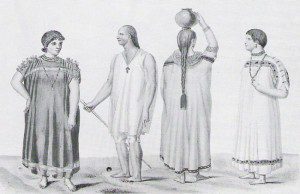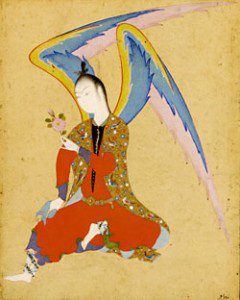 Indigenous peoples recognize multiple aspects of soul, with different destinies after death and different degrees of mobility during life.
Indigenous peoples recognize multiple aspects of soul, with different destinies after death and different degrees of mobility during life.
Thus the Chiquitano believe a human has three souls, called the shadow soul, the blood soul and the breath soul. During dreams the blood soul (otor) can wander a little, but must stay close to the body.
The shadow soul (ausipis) can make longer journeys, leaving the body and the blood soul far behind. In the morning, it returns and give the other two souls an account of its adventures. It’s these long journeys of the shadow souls that account for big dreams in which the dreamer enters other realms and other times; they may visit the future, or go to the plane where souls that have not yet been born gather and prepare for their descent into bodies.
There is danger in these long journeys, because hostile non-human beings called obois try to catch the shadow soul in invisible threads and coax or force it to consume a drink that will trap it in another domain. The light and smoke of a cigar are believed to be helpful in defeating these attackers.
“Chiquitano” – derived from Chiquitos, Little Ones – was a name imposed by the Conquistadores on a number of peoples of eastern Bolivia and Mato Grosso amalgamated by the Jesuit missions in the seventeenth century.
Source: JürgenRiester, “Curanderos y brujois de los indios chiquitanos” in Revista de la Universidad Boliviana “Gabriel René Moreno” vol, 16, nos 31-32 (1972).
Image: Alcides d’Orbigny (1831). Public Domain.

